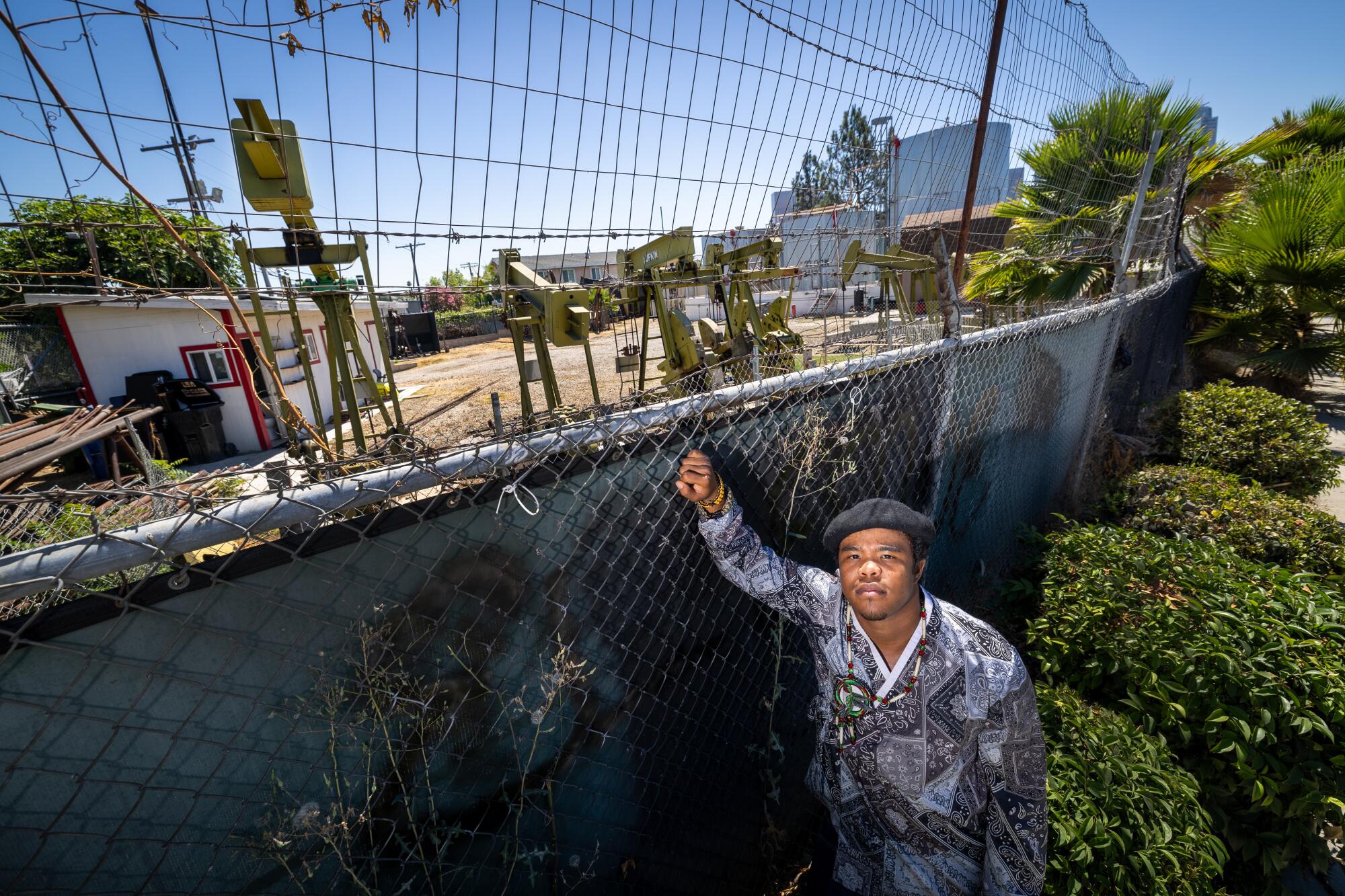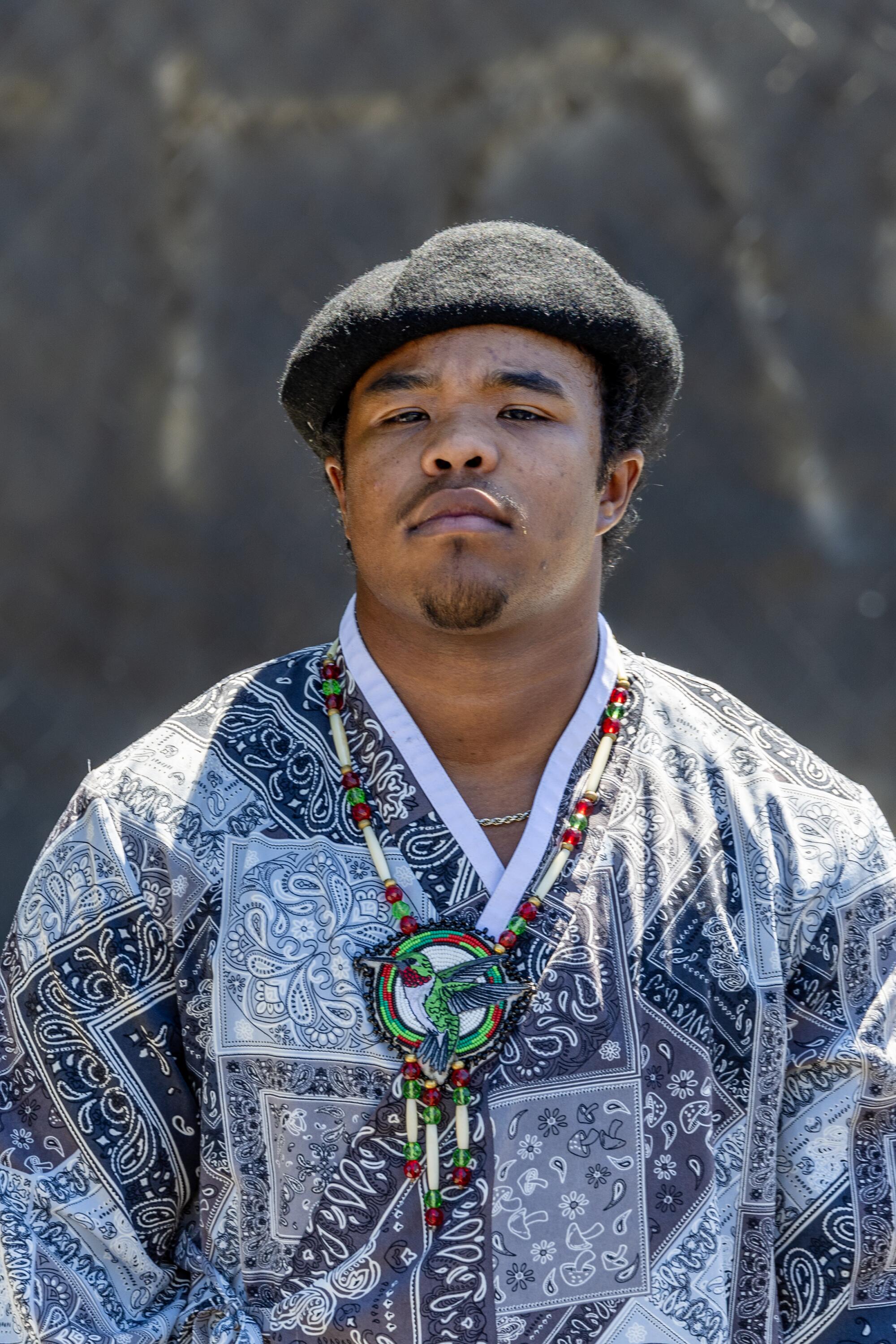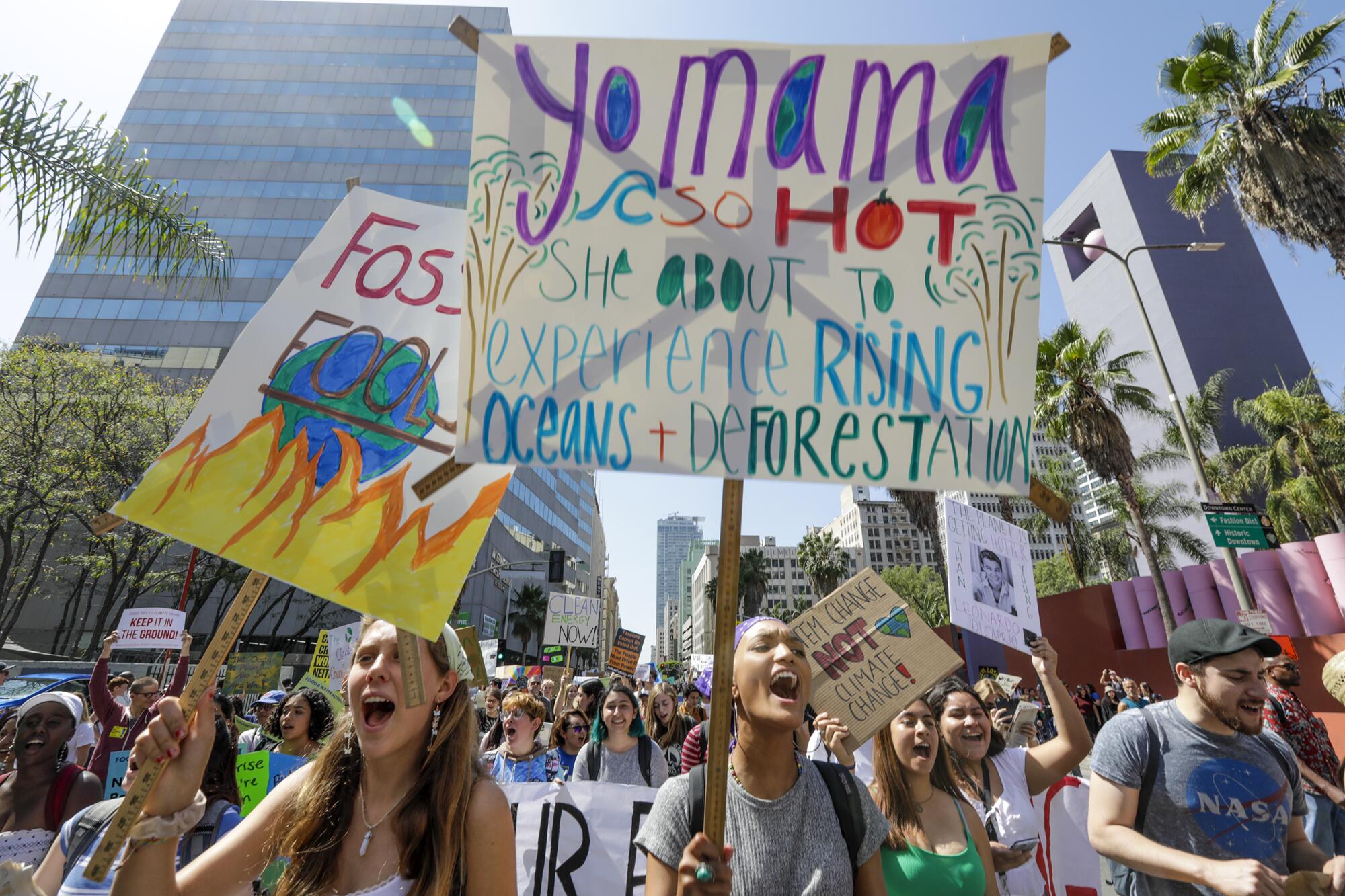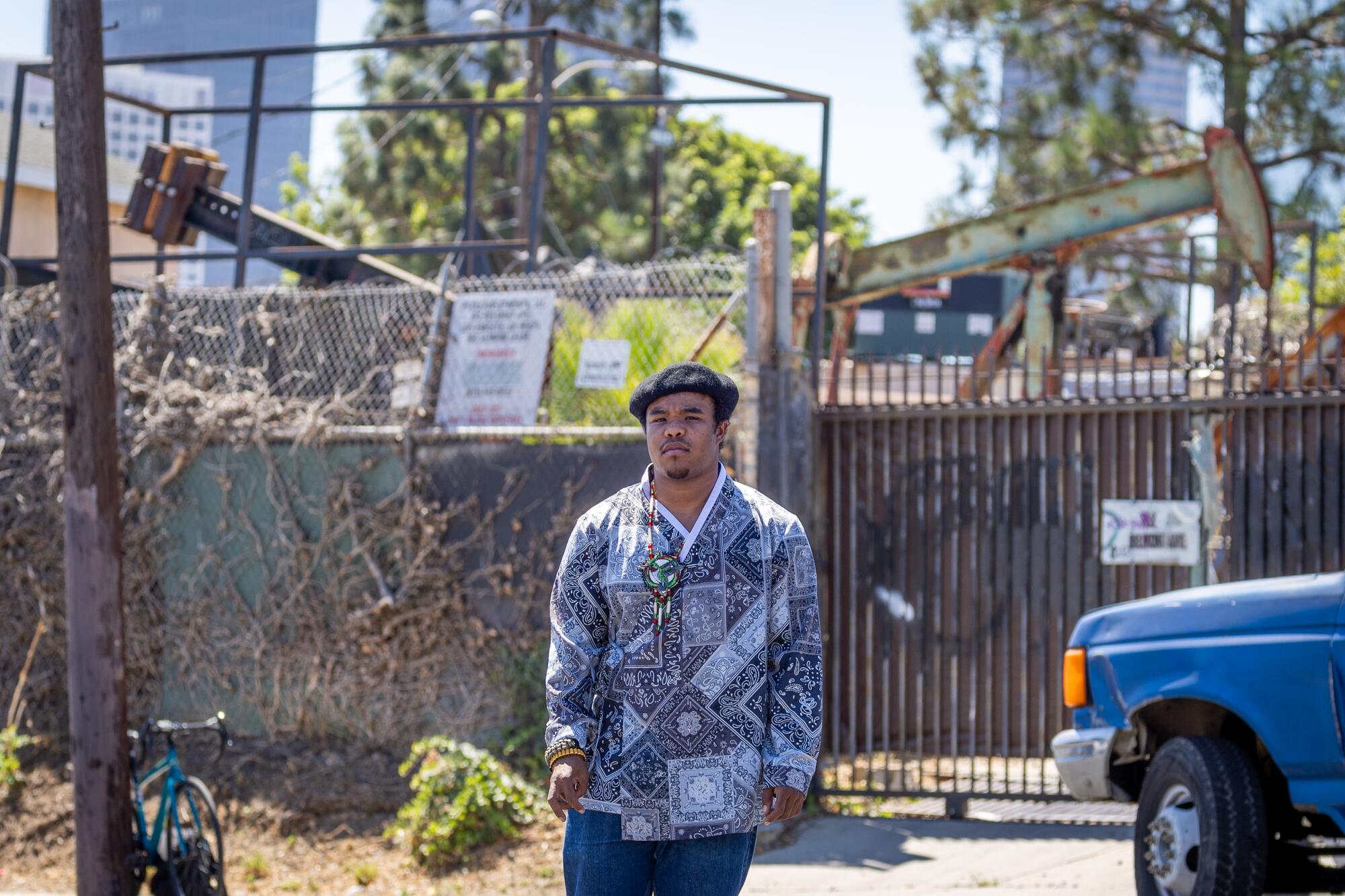
- Share via
My earliest memories are of my Korean grandmother, my halmoni. I was 3 years old, pedaling with pride as I showed her my newfound skill — riding a tricycle. It didn’t take long for my labored pedaling to be replaced by her strength as she pushed me along from behind and we burst out in fits of laughter and joy in unison.
I brought her out to the backyard of our South Central apartment to show her something new. I noticed the tiny hummingbird nest resting on a little branch above the yard. I’ve always cherished that moment and how much she cared about the little things that interested me.
It was special and, as I grew older and as my childhood memories slipped away, I held onto that moment with intention. I never wanted to forget who my halmoni was to me. I wanted to remember her how she was before she got sick.

I was about 5 and starting kindergarten when my halmoni was getting sick. I wasn’t allowed to see her very often. She’d lost a lot of weight, and was sleeping or tired most of the time. My previous memories of her, as an energetic and youthful woman, starkly conflicted with who I saw before me.
I don’t remember much about this time, but I do remember the questions that hounded me : “How could she get sick?” “Isn’t she too young?” “Wasn’t she just healthy?” “What caused this?” “Who caused this?” “Is this going to happen to someone else I love?”
After two years of battling cancer, she died. She was only 50 years old, and she left behind her 24-year-old daughter, my mother, raising me and my two sisters alone.
About a year later, I started to notice all the oil rigs. The large, black machines lining my favorite park were not too different from the ones by the place my halmoni had worked in Long Beach.
I was 6 when I understood what was happening.

My mom would watch movies when my siblings and I were supposed to be asleep. Sometimes, I would tiptoe into the living room, careful not to make a noise, and lie on the ground watching whatever was showing. That’s where I heard the words “global warming” for the first time. There was an old man on the TV. He seemed like he had authority, lecturing as graphics and figures flashed behind him. It turns out I was watching “An Inconvenient Truth” with Al Gore.
The more I learned about climate change, the more climate anxiety I would have, and the more nightmares I would experience. I saw the climate crisis everywhere. I saw the poison being pulled from the Earth that made my grandmother sick and took her from me. I saw that same poison stealing my future away from me.
So, I did everything I was told I could do to reduce my family’s water and energy consumption. I unplugged appliances, cursed SoCalGas, turned off the faucet to save water, started a garden, grew trees from seeds and sprouts, and cleaned up garbage wherever I could. But that wasn’t enough:
My other grandma is from the Chickasaw Nation, and in her youth she was also an activist. She helped me understand what activism is, how power structures can force us to live near extracting industries.
I started organizing in high school for climate justice, and I credit a lot of my drive and passion to both my grandmas. They helped me understand our role as humans to steward the natural world, to be resilient and to be unwavering and unafraid, as I organize to fight for climate and environmental justice in my community like banning neighborhood oil drilling and having clean air, water and soil.
On Sept. 20, 2019, I marched with 20,000 other young people like me who were angry and who’d had enough. We were striking from school for our future and for climate justice, and we shut down downtown Los Angeles. My action went from climate striking every Friday with my friends to confronting the people who were actively selling out our future — corporate executives and government officials alike.
I’ve been organizing with Youth Climate Strike Los Angeles. We organize youth across Los Angeles County for climate justice, and sometimes we have to escalate to be heard when we’re demanding a livable future. The people who make decisions to sacrifice my community aren’t often confronted by the people and the communities that they harm.

We’re climate striking again on Sept. 20. I can see everything that we’re fighting for just on the horizon. The world our parents know and grandparents shaped is dying, but we are alive and that future is alive within us.
Sim Bilal has been a climate activist for more than eight years and is a community organizer, working on banning oil drilling in his neighborhood, advocating for green spaces, and building climate literacy. He is a co-director of Youth Climate Strike Los Angeles and a member of the Los Angeles County Youth Climate Commission.







